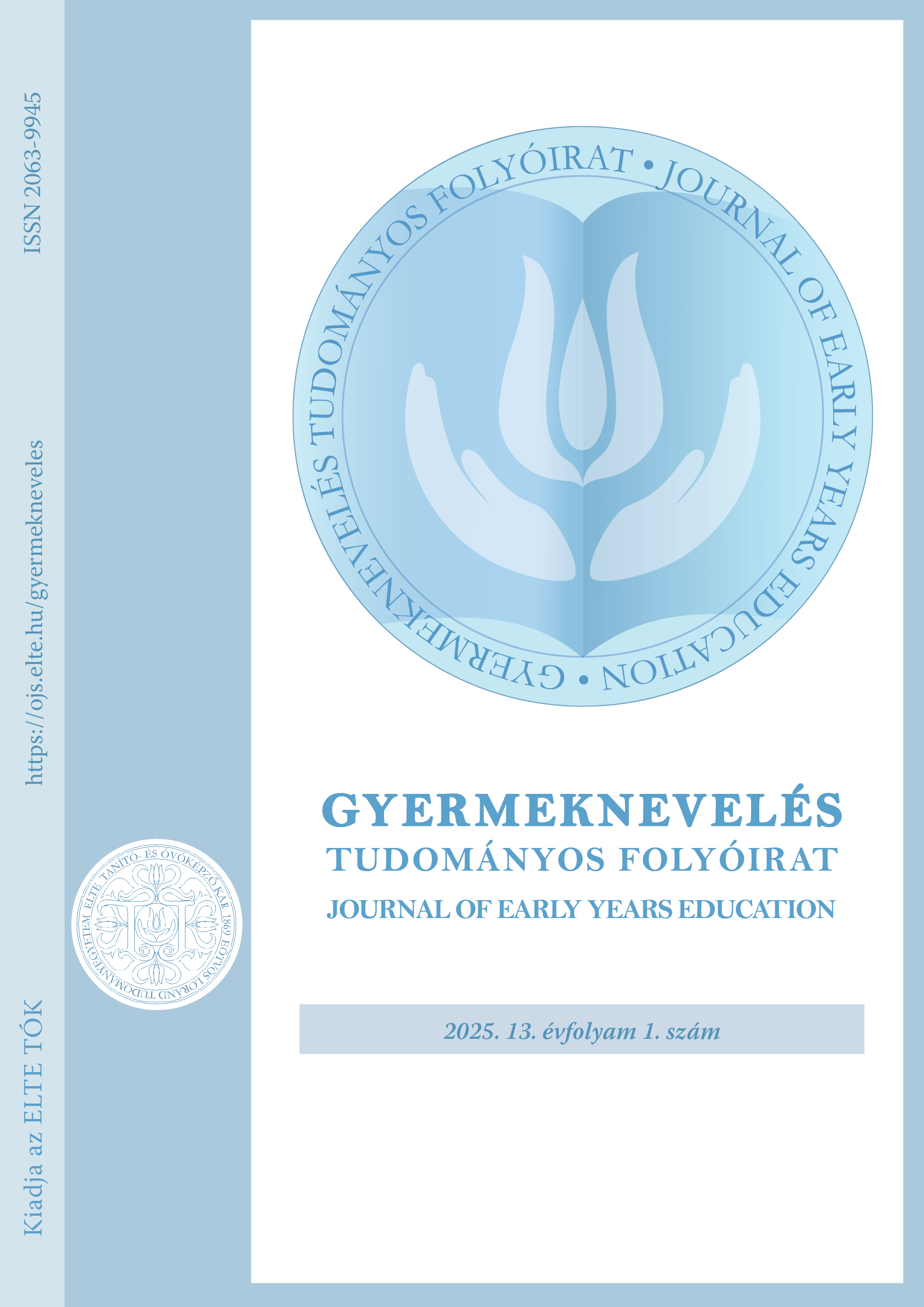Estimating and measuring competence in the 2012 and 2020 National Curriculum: comparison of primary student knowledge
DOI:
https://doi.org/10.31074/gyntf.2025.1.41.52Keywords:
environmental studies, mathematics, teaching measurementAbstract
In the revised National Curriculum 2020, the number of lessons in environmental studies has been reduced (one lesson per week in grades 3-4) compared to the previous one (one lesson per week in grades 1-4). As a result, it is necessary to develop specific methods and transfer knowledge that contribute to science education, including mathematics lessons. Our research focused on investigating how the knowledge of lower secondary school students on measurement has changed in the light of curricular changes. In autumn 2021 and 2022, third-grade students (N=607) from six primary schools completed an offline (paper) questionnaire on their science knowledge. The students were surveyed in the two school years following two different curricula (NAT 2012; NAT 2020). The average score of the schools was between 5.31 and 6.07 out of the maximum 7 points. 43% of the students scored the maximum points and 26% scored 6 points. Both figures suggest that the students had the appropriate information about the subject of the assessment for their age group. In terms of the scores obtained on the task, students in 2021 scored significantly better (t = 5.012; p < 0.01) than those in the later academic year. This difference was true not only in terms of the overall score, but also the scores of the individual sub-tasks. The results suggest that students who had had an environmental science lesson in grades 1-2 had a greater knowledge of the topic measured.
Downloads
References
Brace, N., Kemp, R. & Snelgar, R. (2016). SPSS for Psychologists (and everybody else). Palgrave Macmillan. https://doi.org/10.1007/978-1-137-57923-2
C. Neményi, E. (2007). Geometria tananyag és a geometria tanulása az alsó tagozaton. ELTE Tanító- és óvóképző főiskolai Kar.
Doba, L. (2018). Fenntarthatóság és a 3–12 évesek fenntarthatóságra nevelése. Kaposvári Egyetem.
Doba, L. & Szántóné Tóth, H. (2019). A környezetismeret tantárgy attitűdvizsgálata egy pilot mérés tükrében. Képzés és Gyakorlat, 17(2), 79–90. https://doi.org/10.17165/TP.2019.2.6
Eshach, H. & Fried, M. N. (2005). Should Science Be Taught in Early Childhood? Journal of Science Education and Technology, 14(3), 315–336. https://doi.org/10.1007/s10956-005-7198-9
Falus, I. & Ollé, J. (2000). Statisztikai módszerek pedagógusok számára. Okker Kiadó.
Field, A. (2017). Discovering Statistics Using IBM SPSS Statistics. SAGE Publications Ltd.
Fűzné Koszó, M. (2012). Módszertani útmutató a környezet- és természetismeret tanításához. Szegedi Egyetemi Kiadó – Juhász Gyula Felsőoktatási Kiadó.
Jirout, J. & Zimmerman, C. (2015). Development of Science Process Skills in the Early Childhood Years. In Cabe Trundle, K. & Saçkes, M. (Eds.), Research in Early Childhood Science Education (pp. 143–165). Springer. https://doi.org/10.1007/978-94-017-9505-0_7
Kontra, J. (2011). A pedagógiai kutatások módszertana. Kaposvári Egyetem.
Korom, E. & Csiszár, I. (2020). Gondolkodtató természettudomány-tanítás – Kisiskoláskor. Mozaik Kiadó.
Környezetismeret 3–4. évfolyam kerettanterv (2020-as NAT -hoz illeszkedő) https://www.oktatas.hu/kozneveles/kerettantervek/2020_nat/kerettanterv_alt_isk_1_4_evf/ (2024.01.07.)
Környezetismeret kerettanterv (2012-es NAT -hoz illeszkedő) https://kerettanterv.oh.gov.hu/01_melleklet_1-4/index_alt_isk_also.html (2024.01.07.)
Makádi, M., Radnóti, K., Róka, A. & Victor, A. (2015). A természetismeret tanítása és tanulása. Szakmódszertani tankönyv. ELTE, Természettudományi Kar. https://doi.org/10.21862/978-963-284-670-5
Mándy, T. & Pethőné Zatureczky, T. (2019). A fizika tantárgy alapozása az alsó tagozatos környezetismeret-órákon. Fizikai Szemle, 69(12), 430–434.
Nagy, J. (2007). Kompetenciaalapú kritériumorientált pedagógia. Mozaik Kiadó.
Nemzeti alaptanterv. (2012). A Nemzeti alaptanterv kiadásáról, bevezetéséről és alkalmazásáról. 10635. 111/2012. (VI. 4.) Korm. Rendelet. Magyar Közlöny, 66., 10635–10847. (2024.01.07.)
Nemzeti alaptanterv. (2020). 5/2020. (I. 31.) Korm. rendelet A Nemzeti alaptanterv kiadásáról, bevezetéséről és alkalmazásáról szóló 110/2012. (VI. 4.) Korm. rendelet módosításáról. Magyar Közlöny, 17., 290–446. (2024.01.07.)
Osborne, J., Simon, S. & Collins, S. (2003). Attitudes toward science: A review of the literature and its implications. International Journal of Science Education, 25(9), 1049–1079. https://doi.org/10.1080/0950069032000032199
Simonyi, S. R. & Homoki, E. (2020). Comparative analysis of the methods of teaching geography in different types of schools. Journal of Applied Technical and Educational Sciences, 10(3), 104–114. https://doi.org/10.24368/jates.v10i3.187
Véghelyi, J. & Pákozdi, E. (1995). Segédanyag a természetismeret tantárgypedagógia tanulásához. ELTE TÓFK.
Downloads
Published
How to Cite
Issue
Section
License
Copyright (c) 2025 Author

This work is licensed under a Creative Commons Attribution-NonCommercial-ShareAlike 4.0 International License.

